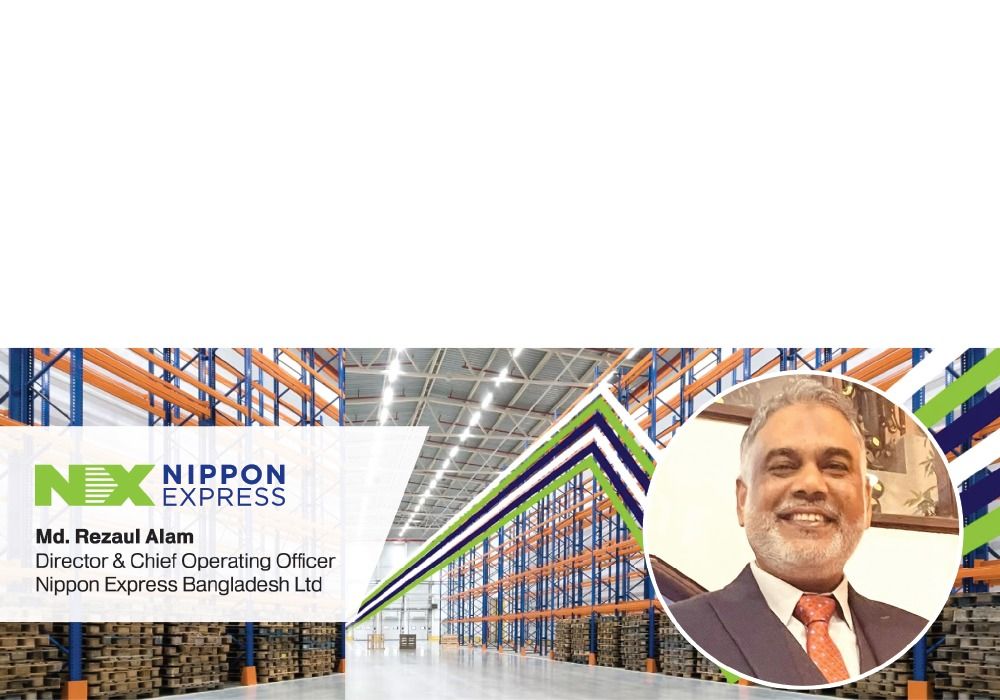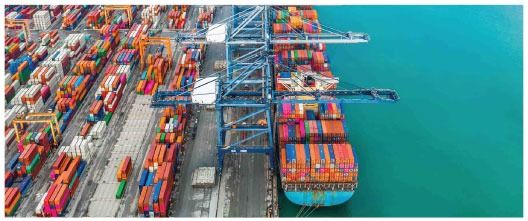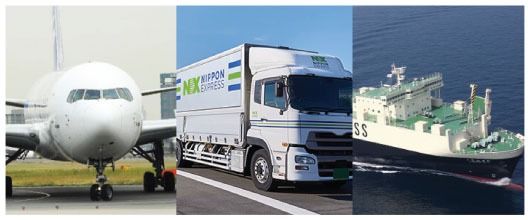- info@ficci.org.bd
- |
- +880248814801, +880248814802
- Contact Us
- |
- Become a Member
- |
- |
- |
- |
- |

Bangladesh being one of South Asia's fastest-growing economies, is steadily gaining traction as a lucrative destination for foreign direct investment (FDI). Recent Bangladesh Investment Summit 2025: A definite step accelerates enormous FDI; The four-day Bangladesh Investment Summit 2025 enfolded up recently, sparking optimism and reflection where local and international stakeholders have participated actively. It aimed to present Bangladesh as a serious, forward-looking destination for investment. This collective presence created seems to be a vibrant environment where ideas flowed, and connections were built as per feedback from various international participants. Foreign community hoping that this summit would signal Bangladesh's readiness to engage in serious conversations about both opportunities and challenges.
Before political instability, the FDI inflows were steady but moderate, concentrated in key sectors such as textiles, garments, pharmaceuticals, and ICT. However, recent political instability, bureaucratic inefficiencies, and inadequate infrastructure posed significant barriers to growth. Limited energy resources and service facilities further deterred large-scale investments. However, the interim government has initiated significant policy changes to attract FDI, recognizing its critical role in job creation and fostering economic and social development.
Economic constraints: Low wages, delayed salary payments, difficulties in accessing industrial loans, and burdensome VAT laws hindering industrial growth.
• Opportunities and strategies to attract FDI such as renewed investor interest. The new government's pro-business policies have garnered interest in sectors such as renewable energy, infrastructure development, and ICT. Regional and global dynamics as geopolitical stability and trade diversification are creating new opportunities, though competition from neighbors like Vietnam and India necessitates innovative strategies. The interim government may consider promoting and reinforcing inter- and intra-regional investment and trade agendas through BIMSTEC, D-8, and SAARC mechanisms. The current interim government's recent initiative to merge several investment-related agencies, such as BEJA, BEPJA, BHTPA, BSCIC, and PPPA, under the single umbrella of the Bangladesh Investment Development Authority (BIDA), will help increase FDI in Bangladesh by centralizing the investment platform, reducing bureaucratic overlap, and creating a unified gateway for local and foreign investors.
If we may propose strategies regarding policy enhancements to ensure consistency in pro-investment policies and strengthen intellectual property protections. To facilitate Infrastructure development expediting transport, facilitate port and customs efficiency mainly energy sector, urban projects and improve SEZ facilities. Differentiate investment sources by engaging with non-traditional markets like ASEAN, the Middle East, and Africa while leveraging displacement networks. Branding and promoting Bangladesh as a competitive investment destination through targeted campaigns and agreements, such as foreign investment protection agreements. Digital transformation such as e-governance, tax holidays, incentivize startups, and enhance digital infrastructure. Focusing sustainability and prioritizing eco-friendly projects and partnering with international organizations to meet ESG standards.
Bangladesh's economy is significantly dependent on its export earnings. The export sector has faced several challenges, but business insiders opine that the recent political disturbance has created an uncertain environment for businesses. The interim government's efforts to restore stability are becoming visible, but the situation has led many international buyers in the garment sector to reconsider placing orders in Bangladesh, anticipating potential disruptions.
Rising temperatures due to climate change have increased heat stress among factory workers, potentially affecting productivity, lead times, and timely shipments. Global brands are legally required to address these conditions in their suppliers' factories under new EU regulations, exerting pressure on Bangladeshi exporters to improve working conditions.
USA president Donald Trump new tariff would lead to another challenges towards exporters to raise competitiveness ahead coupled with the country's graduation from the least developed country (LDC) status in 2026. Business leaders have expressed concerns that could adversely impact industries already struggling with increased production costs and global competition.

* Reducing logistics costs, which can significantly boost exports. Implementing the National Logistics Policy 2024 aims to lower business costs, enhance competitiveness, and integrate Bangladesh into the global value chain. However, a periodical review and revision of logistics policy is necessary. Investing in infrastructure, such as ports and transportation networks, which can improve efficiency and reduce costs, making Bangladeshi exports more competitive.
* Curtailing dependency on the garment sector by supporting other industries such as leather, agriculture, handicrafts, Semi-conductor, Electronics, Automobile, Healthcare & Pharmaceuticals, Tourism, ICT and Service Sectors etc. Inconsistent policies have been barriers to export diversification and addressing these can open new markets.
* Developing logistics park, ports, and transportation networks, which is important to enhance export efficiency and reduce costs, thereby increasing competitiveness in the global market.
Cold chain can save food supply chain - When Brazil, the Philippines and the Caribbean countries have been supplying banana, a highly perishable fruit, to the other corners of the world, Bangladesh cannot do so even within its small boundaries without using toxic preservatives.
Transporting and storage of fruits, vegetables, meat, and other perishable foods within the nation and creating facilities for temperature-controlled supply chain is essential for the country and focusing COLD CHAIN LOGISTICS as infrastructure industry to facilitate food safety and reduce post-harvest losses. Invite local and international operators to support TCL (temperature control logistics) and facilitate airport storage, faster customs clearance, and domestic delivery. The issue came to the fore in recent years after food adulteration reached alarming magnitudes. Tax free equipment to enhance TCL industry is necessary to facilitate the food value chain.
Among the sectors with significant untapped potential is logistics, which forms the backbone of trade and commerce. With Bangladesh's strategic geographical location bridging South and Southeast Asia, the country is naturally positioned to become a logistics hub. However, realizing this potential hinges largely on the effectiveness of its fiscal policies and tax regulations in attracting and retaining foreign investment.

The Importance of Freight and Logistics in Bangladesh
Bangladesh has seen rapid growth in industrial output which growth has dramatically increased the demand for efficient transportation, warehousing, customs clearance, and freight handling services. However, inefficiencies in logistics-such as ports, customs, outdated infrastructure, and regulatory bottlenecks-have raised the cost of doing business.
Modernizing this sector not only enhances trade facilitation but also attracts multinational companies seeking streamlined supply chains in Asia. This is where targeted fiscal policies and tax incentives become critical. Key Fiscal Policies to Attract FDI:
1. Tax Incentives and Holidays:
Offering tax holidays for logistics, freight forwarding industry including cold chain logistics; especially in special economic zones (SEZs)can significantly lower entry barriers for foreign firms. Several SEZS already provide reduced tax rates for up to 10 years, but broader application of such incentives in logistics-specific zones could stimulate further interest.
2. VAT and Customs Duty Rationalization:
Reducing or exempting VAT and import duties on logistics equipment (such as cargo scanners, tracking technology, warehouse automation systems and temperature control equipment, forklift, stacker, palletize equipment, cold boxes, warehouse racking items) would make it more attractive for foreign investors to establish advanced logistics operations in Bangladesh.
3. Depreciation and Capital Allowances:
Enhanced capital allowances on logistics infrastructure (e.g., cold storage units, distribution centers) could be introduced. Allowing accelerated depreciation can provide significant relief to firms investing heavily in fixed assets.
4. Double Taxation Avoidance Agreements (DTAA):
Bangladesh has signed DTAAs with over 30 countries. Promoting and expanding these agreements can protect foreign investors from tax-related uncertainties and encourage reinvestment of profits.
Streamlining Tax and Regulatory Framework
A key concern for international logistics companies is regulatory predictability. Despite reforms, Bangladesh's tax regime is often seen as complex and inconsistently enforced. Simplifying tax codes, ensuring transparency in audits, and digitizing compliance can create a more investor-friendly environment.
The National Board of Revenue (NBR) could consider establishing a dedicated unit for foreign logistics investors, offering advisory services and fast-track resolution of tax disputes.
Additionally, customs procedures remain a major pain point. The adoption of the National Single Window (NSW) platform and alignment with World Trade Organization (WTO) Trade Facilitation Agreement (TFA) guidelines are welcome developments. Full implementation would greatly enhance efficiency and reduce lead times-key concerns for logistics providers.
Public-Private Partnerships (PPP) and Infrastructure Investment
To further encourage FDI, Bangladesh can expand its PPP framework to logistics. Foreign investors often seek stable, long-term opportunities with risk-sharing mechanisms. By offering co-investment opportunities in logistics parks, inland container depots, and multimodal transport hubs, the government can attract world-class operators while improving national logistics capabilities.
5. Enhancing Tax and Regulatory Clarity
One-stop investment service with the Bangladesh Investment Development Authority (BIDA) to streamline licensing, VAT registration, and customs approvals.
Digitize customs and taxation systems to reduce corruption and inefficiency.
Introduce bilateral tax treaties to avoid double taxation and increase investor confidence.
Policy Recommendations for Greater Impact
To capitalize on the freight and logistics boom, Bangladesh should:
Establish sector-specific fiscal incentives targeting logistics FDI.
Improve customs and taxation transparency and minimize bureaucratic hurdles.
Encourage infrastructure investment through PPPs and streamlined land acquisition policies.
Strengthen coordination between the NBR, Bangladesh Investment Development Authority (BIDA), and port authorities for one-stop services.
Include customs licensing in the same forwarding license all over the country’s ports & land borders.

Conclusion
Bangladesh stands at a pivotal moment in its economic journey. With strategic fiscal policies and a forward-thinking tax regime, the country can transform its logistics and freight forwarding sector into a magnet for global investment. Doing so not only enhances trade competitiveness but also generates employment, technology transfer, and long-term economic resilience. The roadmap is clear—what’s needed now is bold execution.





